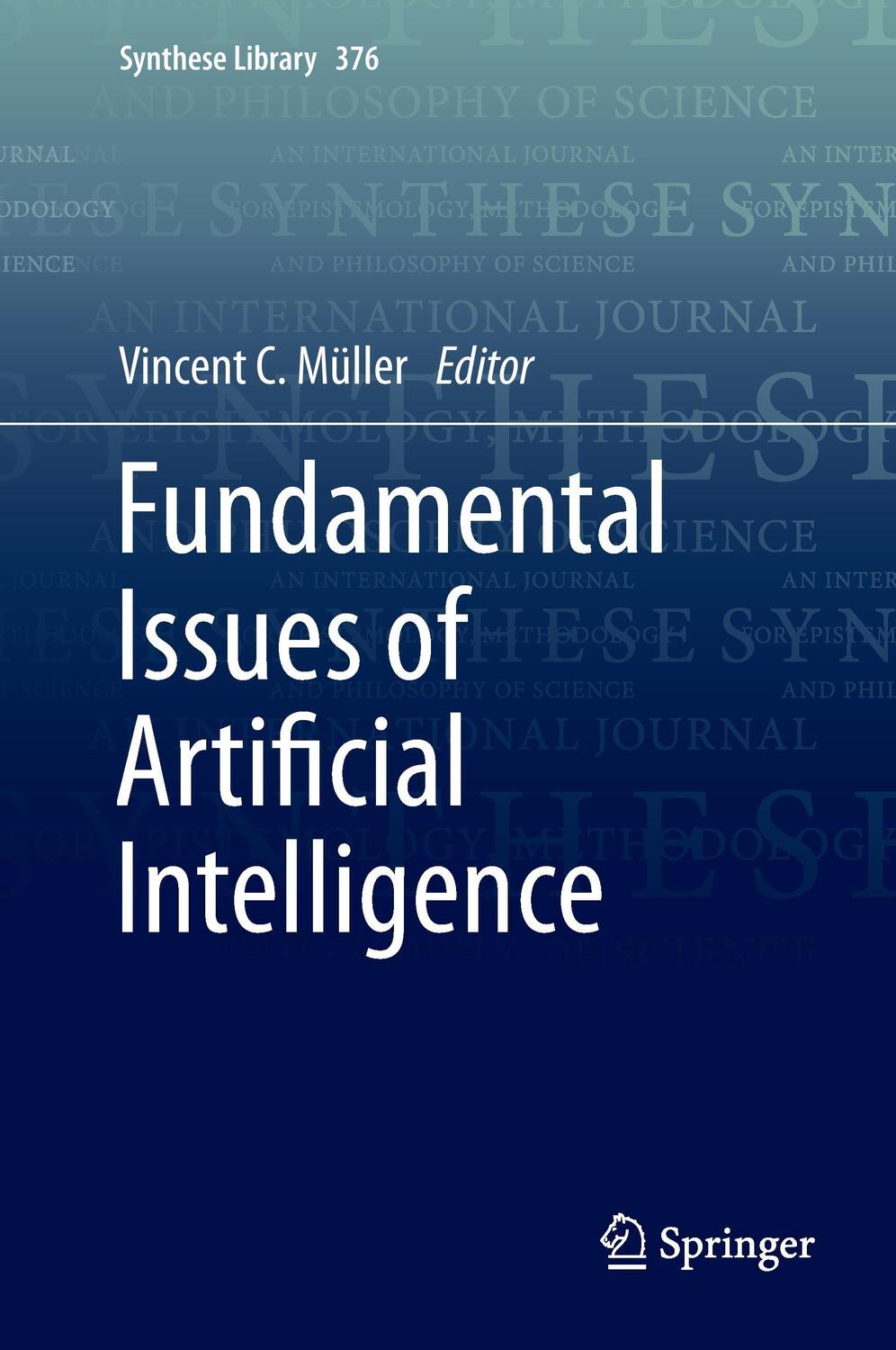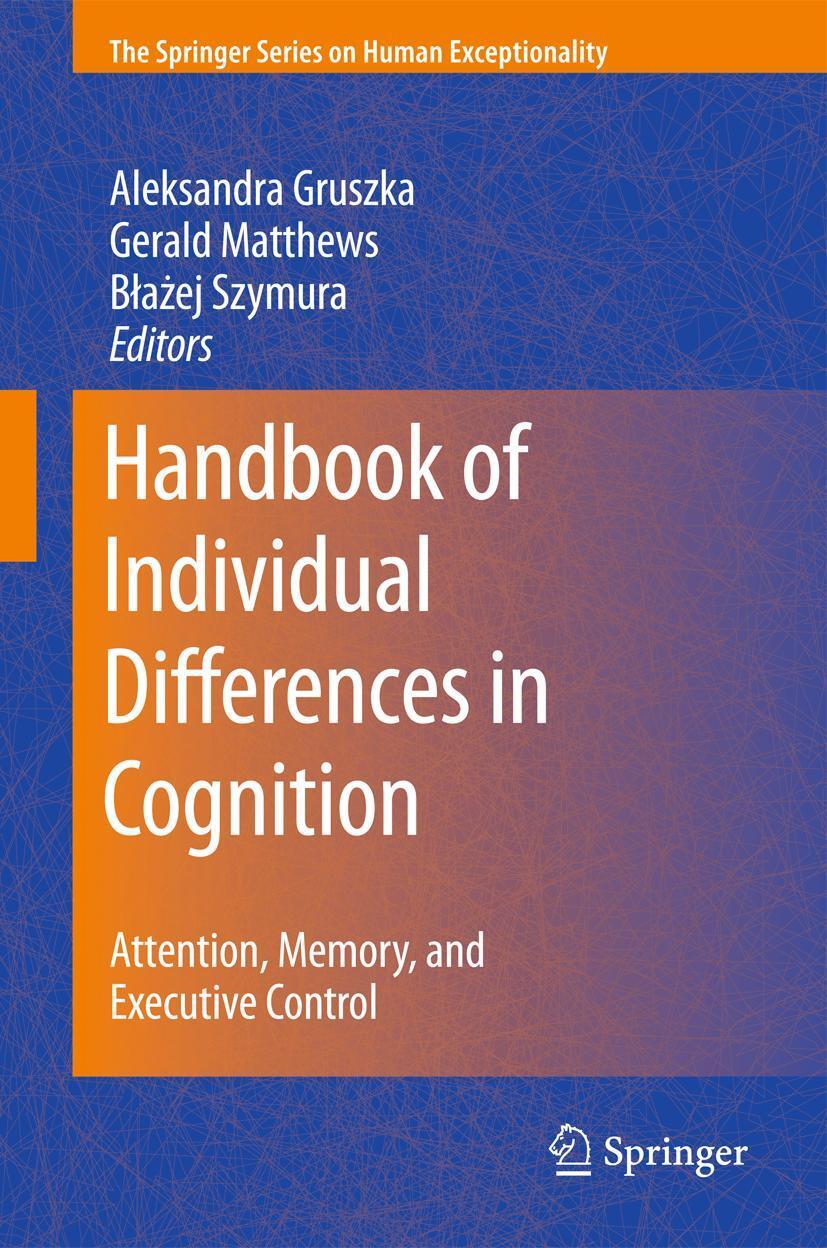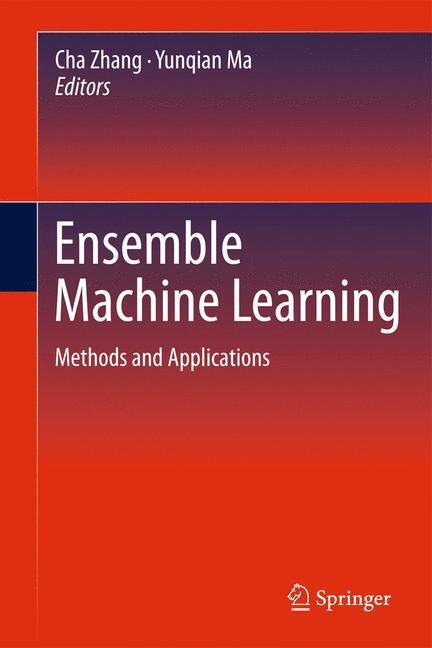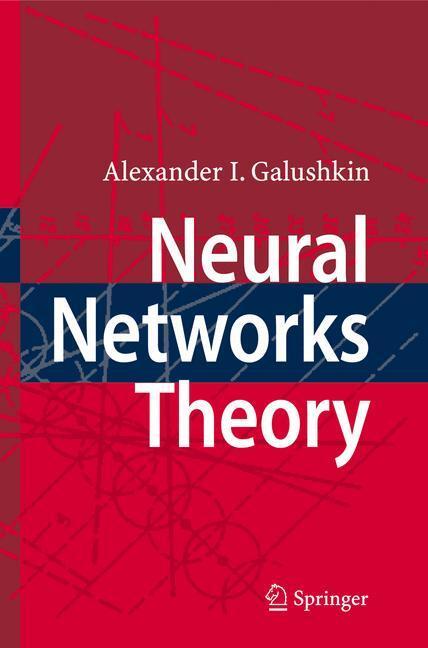246,09 €*
Versandkostenfrei per Post / DHL
Aktuell nicht verfügbar
The key issues this volume investigates include the relation of AI and cognitive science, ethics of AI and robotics, brain emulation and simulation, hybrid systems and cyborgs, intelligence and intelligence testing, interactive systems, multi-agent systems, and super intelligence.
Based on the 2nd conference on ¿Theory and Philosophy of Artificial Intelligence¿ held in Oxford, the volume includes prominent researchers within the field from around the world.
The key issues this volume investigates include the relation of AI and cognitive science, ethics of AI and robotics, brain emulation and simulation, hybrid systems and cyborgs, intelligence and intelligence testing, interactive systems, multi-agent systems, and super intelligence.
Based on the 2nd conference on ¿Theory and Philosophy of Artificial Intelligence¿ held in Oxford, the volume includes prominent researchers within the field from around the world.
First work to offer a complete overview on the theory and philosophy of artificial intelligence
Scrutinizes fundamental issues of present and future AI, especially within cognitive science, computer science, neuroscience and philosophy
Investigates key issues such as AI and cognitive science, dynamical systems, ethics of AI and robotics, brain emulation and simulation
Editorial Note; Vincent C. Müller.- New developments in the philosophy of AI; Vincent C. Müller.- Part 1. Computing.- Rationality and Intelligence: A Brief Update; Stuart J Russell.- Computation and Multiple Realizability; Marcin Mi¿kowski.- When Thinking Never Comes to a Halt: Using Formal Methods in Making Sure Your AI Gets the Job Done; Tarek Richard Besold and Robert Robere.- Machine Intelligence and the Grammar of Computability; David Leslie.- Is there a Role for Computation in the Enactive paradigm? ; Carlos Eduardo Brito and Victor X. Marques.- Natural Recursion Doesn't Work that Way: Automata in Planning and Syntax; Cem Bozsahin.- Part 2. Information.- AI, Quantum Information, and External Semantic Realism: Searle's Observer-Relativity and Chinese Room, Revisited; Yoshihiro Maruyama.- Semantic Information and Artificial Intelligence; Anderson de Araújo.- Information, Computation, Cognition. Agency-based Hierarchies of Levels; Gordana Dodig Crnkovic.- From Simple Machines toEureka in Four Not-So-Easy Steps. Towards Creative Visuospatial Intelligence; Ana-Maria Olteteanu.- Part 3. Cognition and Reasoning.- Leibniz's Art of Infallibility, Watson, and the Philosophy, Theory, & Future of AI; Selmer Bringsjord and Naveen Sundar Govindarajulu.- The Computational Theory of Cognition; Gualtiero Piccinini.- Representational Development Need Not Be Explicable-By-Content; Nicholas Shea.- Toward a Theory of Intelligent Complex Systems: From Symbolic AI to Embodied and Evolutionary AI; Klaus Mainzer.- The Anticipatory Brain: Two Approaches; Mark Bickard.- General homeostasis, passive life, and the challenge to autonomy; Stefano Franchi.- Ad Hoc Hypotheses and the Monsters within; Ioannis Votsis.- Arguably argumentative: A formal approach to the argumentative theory of reason; Sjur Kristoffer Dyrkolbotn and Truls Pedersen.- Explaining Everything; David Davenport.- Why Emotions Do Not Solve the Frame Problem; Madeleine Ransom.-
Playing HeX with Aunt Hilary: Games with an anthill; J. Mark Bishop, Slawomir J. Nasuto, Matthew Spencer, Etienne Roesch and Thomas Tanay.- Computer Models of Constitutive Social Practices; Richard Evans.- Part 4. Embodied Cognition.- Artificial Intelligence: The Point of View of Developmental Robotics; Jean-Christophe Baillie.- Tacit Representations and Artificial Intelligence: Hidden Lessons from an Embodied Perspective on Cognition; Elena Spitzer.- Machine art or machine artists?: Dennett, Danto, and the expressive stance; Adam Linson.- Perception, Action & the Notion of Grounding; Alex Tillas and Gottfried Vosgerau.- The Seminal Speculation of a Precursor: Elements of Embodied Cognition and Situated AI in Alan Turing; Massimiliano Cappuccio.- Heideggerian AI and the being of robots; Carlos Herrera and Ricardo Sanz.- Part 5. Ethics.- The need for moral competency in autonomous agent architectures; Matthias Scheutz.- Order Effects, Moral Cognition, and Intelligence; Marcello Guarini and Jordan Benko.- Artificial Intelligence and Responsible Innovation; Miles Brundage.- Future Progress in Artificial Intelligence: A Survey of Expert Opinion; Vincent C Müller and Nick Bostrom.| Erscheinungsjahr: | 2016 |
|---|---|
| Genre: | Philosophie |
| Rubrik: | Geisteswissenschaften |
| Medium: | Buch |
| Seiten: | 580 |
| Reihe: | Synthese Library |
| Inhalt: |
ix
572 S. 62 s/w Illustr. 572 p. 62 illus. |
| ISBN-13: | 9783319264837 |
| ISBN-10: | 3319264834 |
| Sprache: | Englisch |
| Herstellernummer: | 978-3-319-26483-7 |
| Ausstattung / Beilage: | HC runder Rücken kaschiert |
| Einband: | Gebunden |
| Redaktion: | Müller, Vincent C. |
| Herausgeber: | Vincent C Müller |
| Auflage: | 1st ed. 2016 |
| Hersteller: |
Springer International Publishing
Springer International Publishing AG Synthese Library |
| Maße: | 241 x 160 x 37 mm |
| Von/Mit: | Vincent C. Müller |
| Erscheinungsdatum: | 15.06.2016 |
| Gewicht: | 1,027 kg |
First work to offer a complete overview on the theory and philosophy of artificial intelligence
Scrutinizes fundamental issues of present and future AI, especially within cognitive science, computer science, neuroscience and philosophy
Investigates key issues such as AI and cognitive science, dynamical systems, ethics of AI and robotics, brain emulation and simulation
Editorial Note; Vincent C. Müller.- New developments in the philosophy of AI; Vincent C. Müller.- Part 1. Computing.- Rationality and Intelligence: A Brief Update; Stuart J Russell.- Computation and Multiple Realizability; Marcin Mi¿kowski.- When Thinking Never Comes to a Halt: Using Formal Methods in Making Sure Your AI Gets the Job Done; Tarek Richard Besold and Robert Robere.- Machine Intelligence and the Grammar of Computability; David Leslie.- Is there a Role for Computation in the Enactive paradigm? ; Carlos Eduardo Brito and Victor X. Marques.- Natural Recursion Doesn't Work that Way: Automata in Planning and Syntax; Cem Bozsahin.- Part 2. Information.- AI, Quantum Information, and External Semantic Realism: Searle's Observer-Relativity and Chinese Room, Revisited; Yoshihiro Maruyama.- Semantic Information and Artificial Intelligence; Anderson de Araújo.- Information, Computation, Cognition. Agency-based Hierarchies of Levels; Gordana Dodig Crnkovic.- From Simple Machines toEureka in Four Not-So-Easy Steps. Towards Creative Visuospatial Intelligence; Ana-Maria Olteteanu.- Part 3. Cognition and Reasoning.- Leibniz's Art of Infallibility, Watson, and the Philosophy, Theory, & Future of AI; Selmer Bringsjord and Naveen Sundar Govindarajulu.- The Computational Theory of Cognition; Gualtiero Piccinini.- Representational Development Need Not Be Explicable-By-Content; Nicholas Shea.- Toward a Theory of Intelligent Complex Systems: From Symbolic AI to Embodied and Evolutionary AI; Klaus Mainzer.- The Anticipatory Brain: Two Approaches; Mark Bickard.- General homeostasis, passive life, and the challenge to autonomy; Stefano Franchi.- Ad Hoc Hypotheses and the Monsters within; Ioannis Votsis.- Arguably argumentative: A formal approach to the argumentative theory of reason; Sjur Kristoffer Dyrkolbotn and Truls Pedersen.- Explaining Everything; David Davenport.- Why Emotions Do Not Solve the Frame Problem; Madeleine Ransom.-
Playing HeX with Aunt Hilary: Games with an anthill; J. Mark Bishop, Slawomir J. Nasuto, Matthew Spencer, Etienne Roesch and Thomas Tanay.- Computer Models of Constitutive Social Practices; Richard Evans.- Part 4. Embodied Cognition.- Artificial Intelligence: The Point of View of Developmental Robotics; Jean-Christophe Baillie.- Tacit Representations and Artificial Intelligence: Hidden Lessons from an Embodied Perspective on Cognition; Elena Spitzer.- Machine art or machine artists?: Dennett, Danto, and the expressive stance; Adam Linson.- Perception, Action & the Notion of Grounding; Alex Tillas and Gottfried Vosgerau.- The Seminal Speculation of a Precursor: Elements of Embodied Cognition and Situated AI in Alan Turing; Massimiliano Cappuccio.- Heideggerian AI and the being of robots; Carlos Herrera and Ricardo Sanz.- Part 5. Ethics.- The need for moral competency in autonomous agent architectures; Matthias Scheutz.- Order Effects, Moral Cognition, and Intelligence; Marcello Guarini and Jordan Benko.- Artificial Intelligence and Responsible Innovation; Miles Brundage.- Future Progress in Artificial Intelligence: A Survey of Expert Opinion; Vincent C Müller and Nick Bostrom.| Erscheinungsjahr: | 2016 |
|---|---|
| Genre: | Philosophie |
| Rubrik: | Geisteswissenschaften |
| Medium: | Buch |
| Seiten: | 580 |
| Reihe: | Synthese Library |
| Inhalt: |
ix
572 S. 62 s/w Illustr. 572 p. 62 illus. |
| ISBN-13: | 9783319264837 |
| ISBN-10: | 3319264834 |
| Sprache: | Englisch |
| Herstellernummer: | 978-3-319-26483-7 |
| Ausstattung / Beilage: | HC runder Rücken kaschiert |
| Einband: | Gebunden |
| Redaktion: | Müller, Vincent C. |
| Herausgeber: | Vincent C Müller |
| Auflage: | 1st ed. 2016 |
| Hersteller: |
Springer International Publishing
Springer International Publishing AG Synthese Library |
| Maße: | 241 x 160 x 37 mm |
| Von/Mit: | Vincent C. Müller |
| Erscheinungsdatum: | 15.06.2016 |
| Gewicht: | 1,027 kg |











